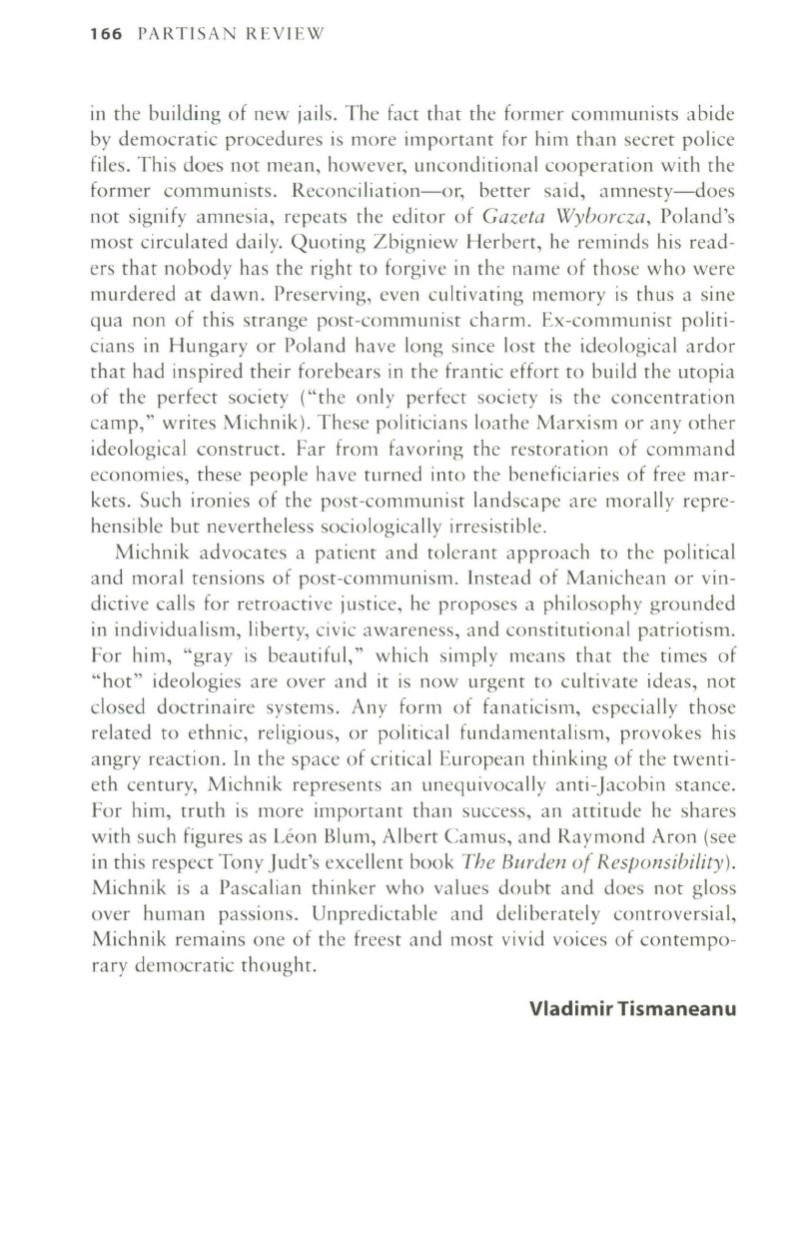
166
PARTISAN REVIEW
in the building of new jails. The fact that the former communists abide
by democratic procedures is more important for him than secret police
files. This does not mean, however, unconditional cooperation with the
former communists. Reconciliation-or, better said, amnesty-does
not signify amnesia, repeats the editor of
Gazeta Wyhorcza,
Poland's
most circulated daily. Quoting Zbigniew Herbert, he reminds his read–
ers that nobody has the right to forgive in the name of those who were
murdered at dawn. Preserving, even cultivating memory is thus a sine
qua non of this strange post-communist charm. Ex-communist politi–
cians in Hungary or Poland have long since lost the ideological ardor
that had inspired their forebears in the frantic effort to build the utopia
of the perfect society ("the only perfect society is the concentration
camp," writes Michnik). These politicians loathe Marxism or any other
ideological construct. Far from favoring the restoration of command
economies, these people have turned into the beneficiaries of free mar–
kets. Such ironies of the post-communist landscape are morally repre–
hensible but nevertheless sociologically irresistible.
Michnik advocates a patient and tolerant approach to the political
and moral tensions of post-communism. Instead of Manichean or vin–
dictive calls for retroactive justice, he proposes a philosophy grounded
in individualism, liberty, civic awareness, and constitutional patriotism.
For him, "gray is beautiful," which simply means that the times of
"hot" ideologies are over and it is now urgent to cultivate ideas, not
closed doctrinaire systems. Any form of fanaticism, especially those
related to ethnic, religious, or political fundamentalism, provokes his
angry reaction .
In
the space of critical European thinking of the twenti–
eth century, Michnik represents an unequivocally anti-Jacobin stance.
For him, truth is more important than success, an attitude he shares
with such figures as Leon Blum, Albert Camus, and Raymond Aron (see
in this respect Tony Judt's excellent book
The Burden of Responsihility).
Michnik is a Pascalian thinker who values doubt and does not gloss
over human passions. Unpredictable and deliberately controversial,
Michnik remains one of the freest and most vivid voices of contempo–
rary democratic thought.
Vladimir Tismaneanu


